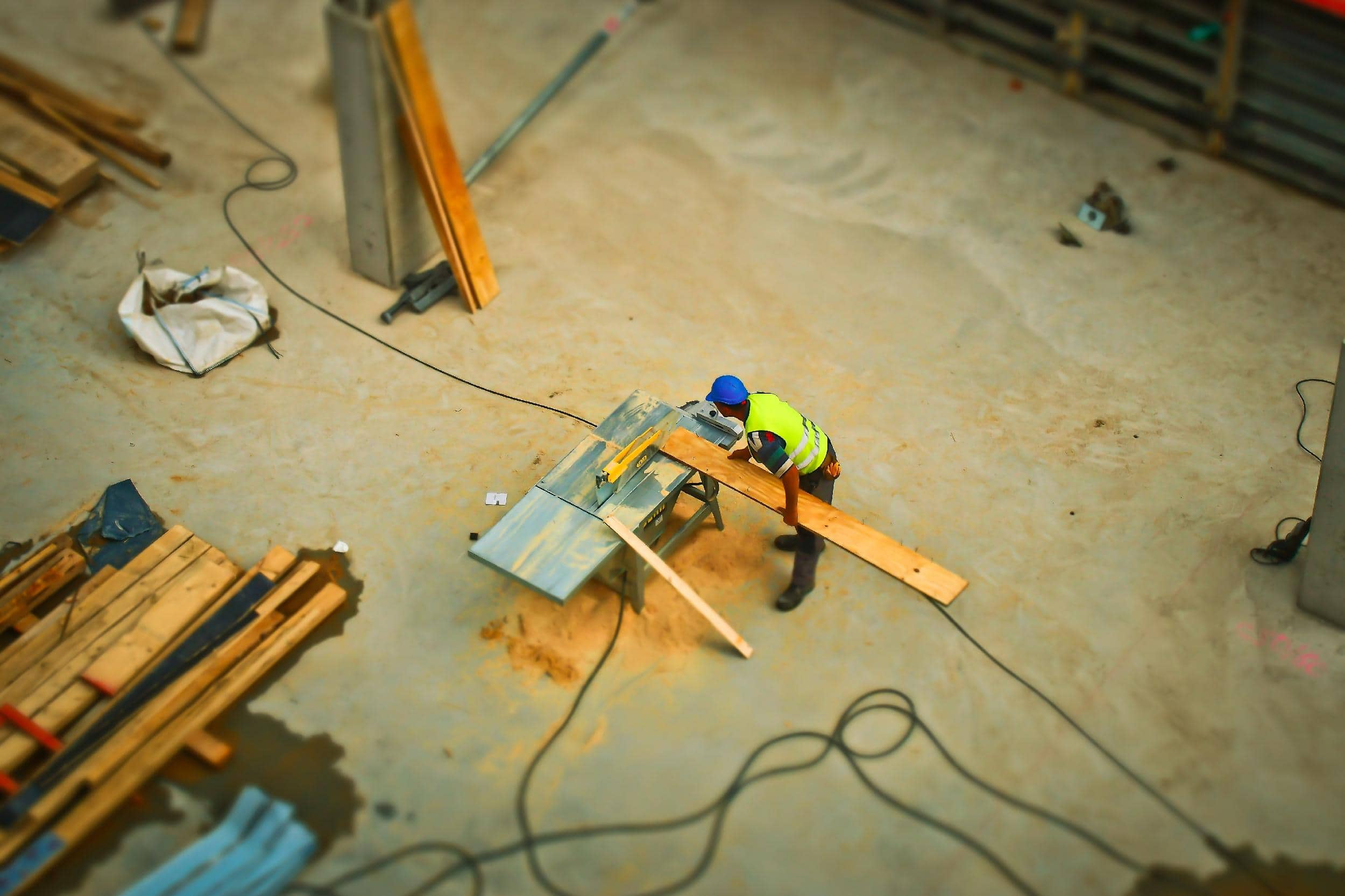
Workers’ compensation hearings play a crucial role in resolving disputes between injured workers and their employers or insurance carriers. These hearings allow both parties to present evidence, testimonies, and arguments before an administrative law judge. Understanding what occurs during a workers’ comp hearing is essential for navigating the process effectively. In this comprehensive guide, we’ll delve into the key aspects of a workers’ comp hearing to help you prepare and navigate the proceedings.
What to Do Before Your Workers’ Compensation Hearing?
Pre-hearing Preparation:
Before stepping into the courtroom, meticulous preparation is paramount. This involves gathering all relevant documents, such as medical records, lost wages, employment records, depositions, and other evidence supporting your case. A thorough understanding of your case history, including the nature of the injury and the circumstances surrounding it, is crucial for a compelling presentation.
Role of the Claims Administrator:
The claims administrator, representing the insurance company, plays a pivotal role in the pre-hearing phase. They are responsible for reviewing your workers’ compensation claim, assessing its validity, and making decisions based on the available evidence. Understanding their role can provide insight into the factors influencing the decision-making process.
Role of the Applicant’s Attorney:
Having an experienced workers’ comp attorney by your side is invaluable. Your attorney will guide you through the legal intricacies, help prepare your case, and ensure that your rights are protected. Their role includes presenting legal arguments, cross-examining witnesses, and negotiating on your behalf.
Medical Evaluations and Reports:
Medical evidence is a cornerstone of any workers’ compensation case. Medical evaluations, reports, and documentation of ongoing treatment are critical components that can significantly influence your hearing outcome. Ensuring that all relevant medical information is presented accurately is essential for building a strong case.
Depositions and Witness Statements:
Depositions and witness statements can provide additional layers of evidence to support your case. These statements may come from colleagues, medical professionals, or other individuals with relevant information about the incident. Each deposition and statement contributes to painting a comprehensive picture of your situation.
Who Attends a Workers’ Comp Hearing?
A workers’ comp hearing involves key participants with specific roles. Knowing who attends is crucial for those navigating the process. Here’s a brief overview:
Applicant: Injured workers actively involved, providing testimony and evidence.
Applicant’s Attorney: Legal representative guiding and advocating for the injured worker.
Claims Administrator: Represents the workers’ compensation insurance company, assesses claim validity, and presents evidence.
Workers’ Compensation Judge: Neutral third party overseeing the hearing and making decisions.
Witnesses: Individuals providing relevant information through testimony.
Court Reporter: Records proceedings, creating an official transcript for future reference.
What Happens During a Hearing
The Hearing Process:
The actual hearing is a formal proceeding where your case is presented before a workers’ compensation judge. The process involves the presentation of evidence, witness testimonies, cross-examination, and legal arguments. Understanding the sequence of events during the hearing is crucial for effective participation.
Role of the Judge:
The judge presiding over the hearing is a neutral third party responsible for overseeing the proceedings. They evaluate the evidence presented, listen to testimonies, and ultimately make a decision based on the merits of the case. Knowing the judge’s role helps in anticipating their expectations and tailoring your presentation accordingly.
Role of the Applicant:
As the applicant, your active participation is vital. You may be required to testify, present evidence, and respond to questions during the hearing. Understanding your role and responsibilities ensures that you contribute effectively to the proceedings.
Role of the Claims Administrator:
The claims administrator’s involvement continues during the hearing. They may present their case, challenge your evidence, and cross-examine witnesses. Recognizing their role helps in preparing for potential challenges to your workers’ compensation claim.
Presentation of Evidence:
The heart of the hearing lies in the presentation of evidence. This includes medical reports, witness statements, and any other documents supporting your case. A well-organized and compelling presentation strengthens your position and increases the likelihood of a favorable decision.
Witness Testimony:
Witnesses, if available, can provide firsthand accounts of the incident, contributing to the overall narrative. Witness testimony is subject to cross-examination, emphasizing the importance of credibility and consistency.
Cross-Examination:
Cross-examination is a critical phase where opposing parties have the opportunity to question the credibility and reliability of the presented evidence and testimonies. Being prepared for cross-examination is essential for maintaining the strength of your case.
What Happens After a Hearing
Waiting for the Decision:
After the hearing concludes, there is a period of anticipation as you await the judge’s decision. This can be a nerve-wracking time, but understanding the typical duration of the decision-making process can help manage expectations.
Appealing the Decision:
If the outcome is not in your favor, you have the right to appeal the decision. Knowing the steps involved in the appeals process and consulting with your attorney can guide you through this phase.
Receiving Benefits:
A favorable decision results in the approval of workers’ compensation benefits. Understanding the process of receiving these benefits, including the timeline and any potential challenges, is crucial for a smooth transition.
Ongoing Medical Treatment:
Even after the hearing, your need for medical treatment may persist. Knowing how ongoing medical treatment is managed within the workers’ compensation system ensures that you continue to receive the necessary care.
What Are the Common Issues?
Medical Evidence:
The adequacy and relevance of medical evidence can be a determining factor in the success of your case. Ensuring comprehensive and accurate documentation of your medical history and current condition is essential.
The Credibility of Witnesses:
The credibility of witnesses, including your testimony, can significantly impact the judge’s decision. Consistency and reliability in statements contribute to the overall credibility of your case.
Pre-Existing Conditions:
Issues related to pre-existing conditions may arise during the hearing. Understanding how these conditions are evaluated and factored into the decision-making process is crucial.
Disputes Over Disability Ratings:
Disputes over disability ratings may occur, influencing the workers’ comp benefits you receive. Being aware of how disability ratings are determined and how to address disputes is essential for a fair outcome.
Procedural Issues:
Navigating the workers’ compensation system involves adhering to specific procedures and deadlines. Awareness of filing deadlines, proper documentation, and compliance with procedural requirements is vital to prevent unnecessary complications.
Should I Hire a Lawyer Before My Workers’ Comp Hearing?
The decision to hire a lawyer before your workers’ compensation hearing is a crucial consideration that can significantly impact the outcome of your case. While it’s not a legal requirement to have legal representation, there are compelling reasons to enlist the services of an experienced workers’ comp attorney.
The Complexity of Workers’ Comp Cases: Navigating the intricacies of workers’ comp cases requires legal expertise, making hiring a lawyer crucial for understanding and addressing complex legal nuances.
Pre-hearing Preparation: An experienced attorney assists in gathering evidence, preparing legal arguments, and ensuring all documentation is in order, strengthening the overall case.
Understanding Your Rights: Knowledgeable attorneys educate you about your rights, benefits, and potential challenges, empowering you to make informed decisions throughout the process.
Negotiating with Insurance Companies: Lawyers act as a buffer between you and an insurance company’s lawyer, negotiating on your behalf to ensure fair compensation and protect your rights.
Expertise in Workers’ Comp Laws: Given the variations in workers’ comp laws, having a lawyer well-versed in California’s regulations is essential for presenting a case within the legal framework.
Handling Appeals: In the event of an unfavorable decision, an experienced attorney guides you through the complexities of the appeals process, increasing the chances of a more favorable outcome.
Contingency Fee Arrangements: Many attorneys operate on a contingency fee basis in most workers’ comp hearings, easing financial concerns as they only get paid if you receive benefits.

Discover Your Path to Justice with BLG
Navigating a workers’ compensation hearing in California demands meticulous preparation, effective presentation, and a clear understanding of the roles involved. From pre-hearing preparations to potential appeals, every step in the process plays a crucial role in determining the outcome. Seeking the guidance of an experienced workers’ comp lawyer can make a substantial difference in the outcome of your case. Remember, knowledge is your greatest asset when facing the complexities of workers’ comp hearings in California.
If you’re facing a workers’ compensation hearing in California, don’t navigate the legal maze alone. Our experienced team at BLG is here to guide you through every step of the process. From pre-hearing preparations to post-decision support, we’ve got you covered.
Contact us today for a free consultation.
FAQs
How does workers compensation work?
Workers’ compensation is a system that benefits employees who suffer work-related injuries or illnesses. It typically covers medical expenses, lost wages, and rehabilitation costs. In exchange, employees generally give up their right to sue their employer for negligence.
How is workers comp settlement calculated?
The calculation of a workers’ compensation settlement varies, but it often takes into account factors like the severity of the injury, medical expenses, future medical needs, lost wages, and sometimes a disability rating. Settlements may be reached through negotiation or determined by a workers’ comp judge.
What is a workers comp appeals board hearing?
A workers’ compensation appeals board hearing is a legal process where disputes related to workers’ comp claims are resolved. If a party disagrees with a decision, they can request a hearing before the appeals board to present evidence and arguments. The board then makes a final decision on the matter.





